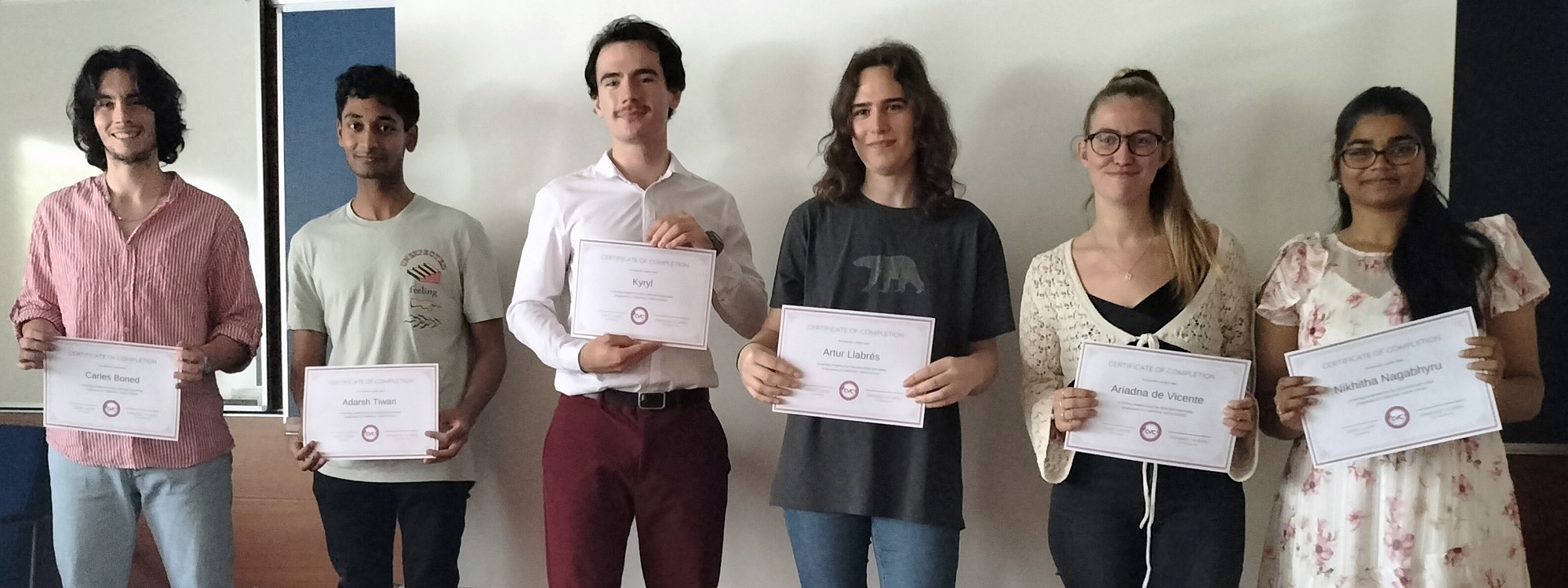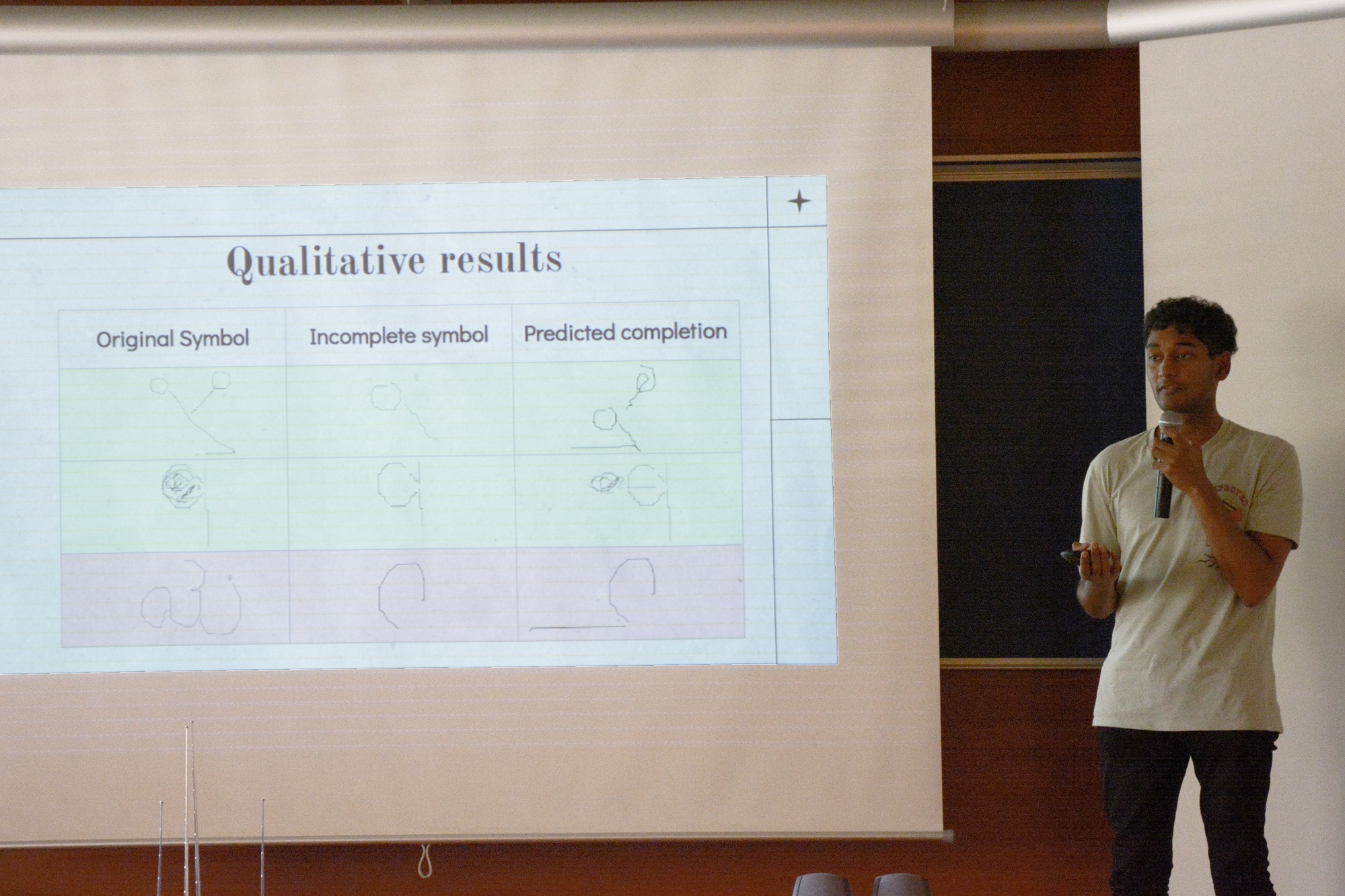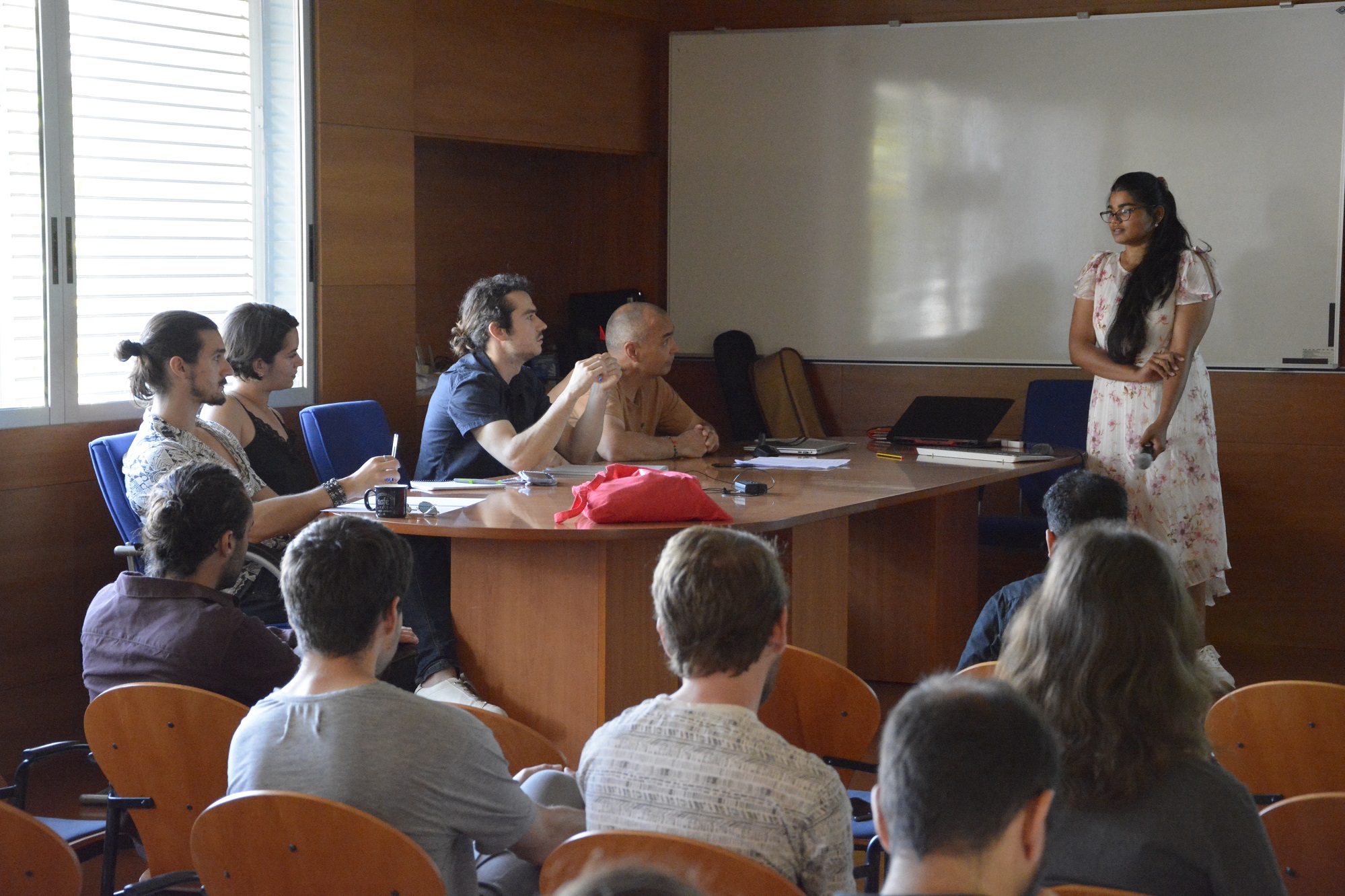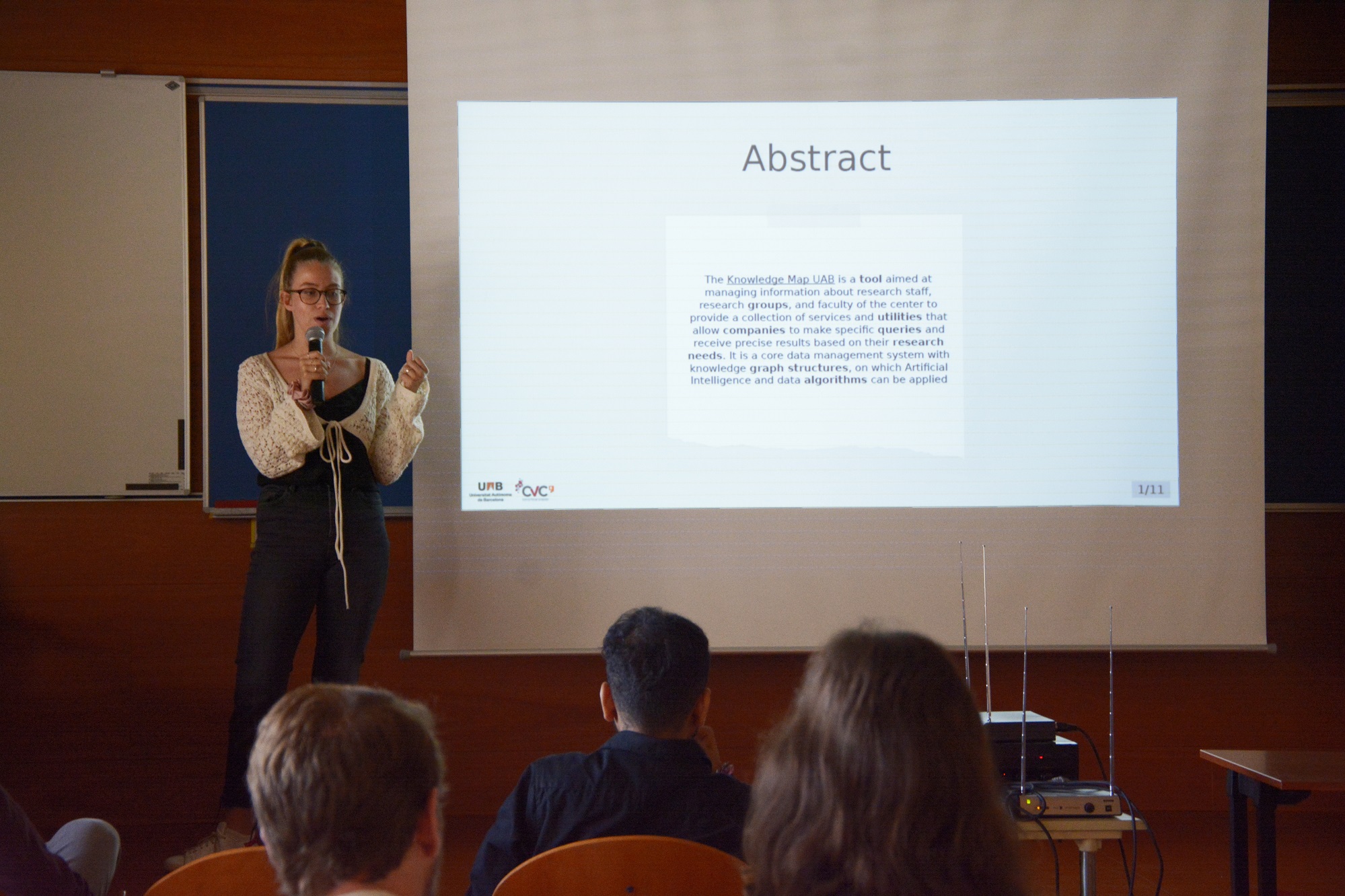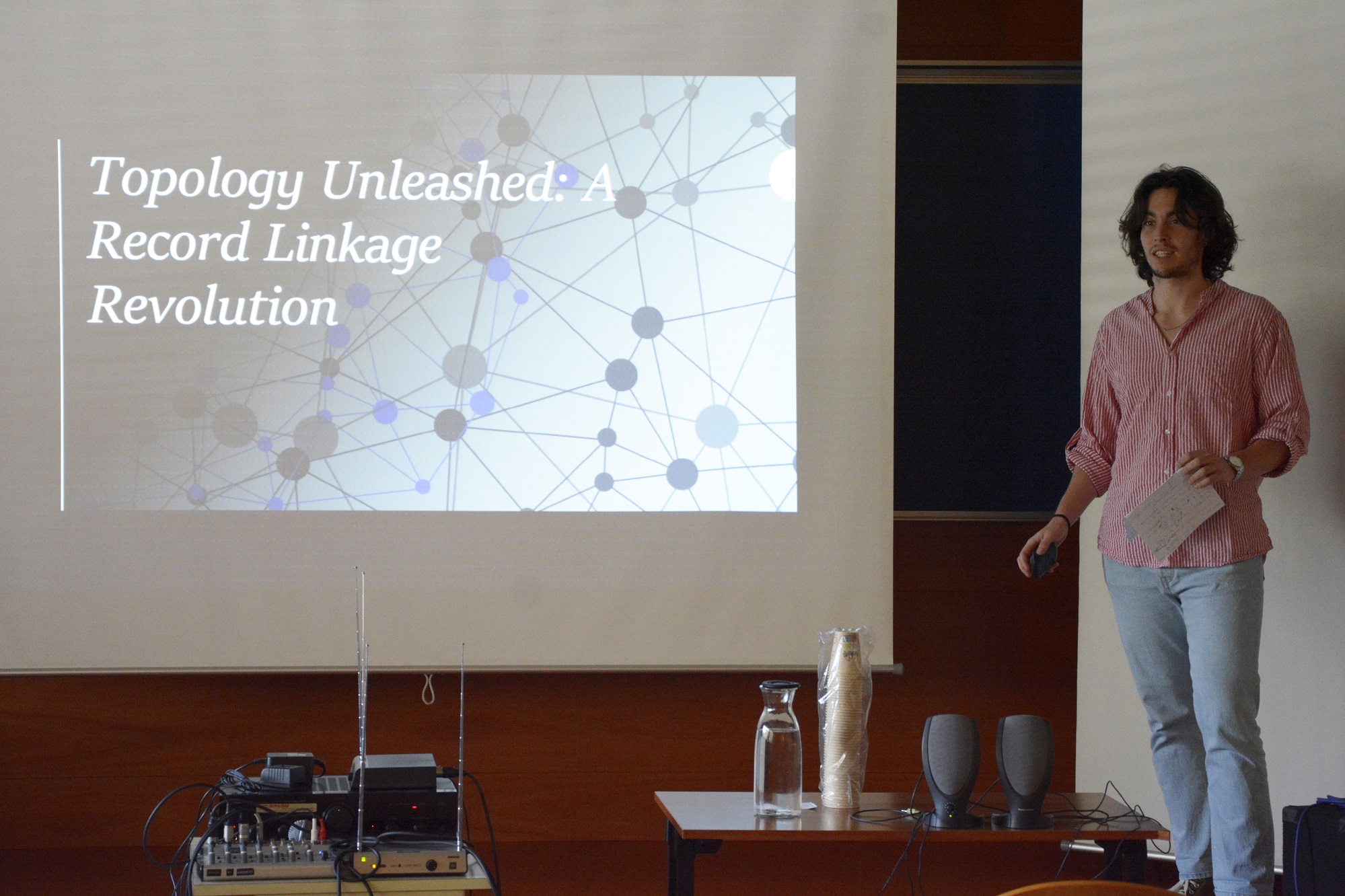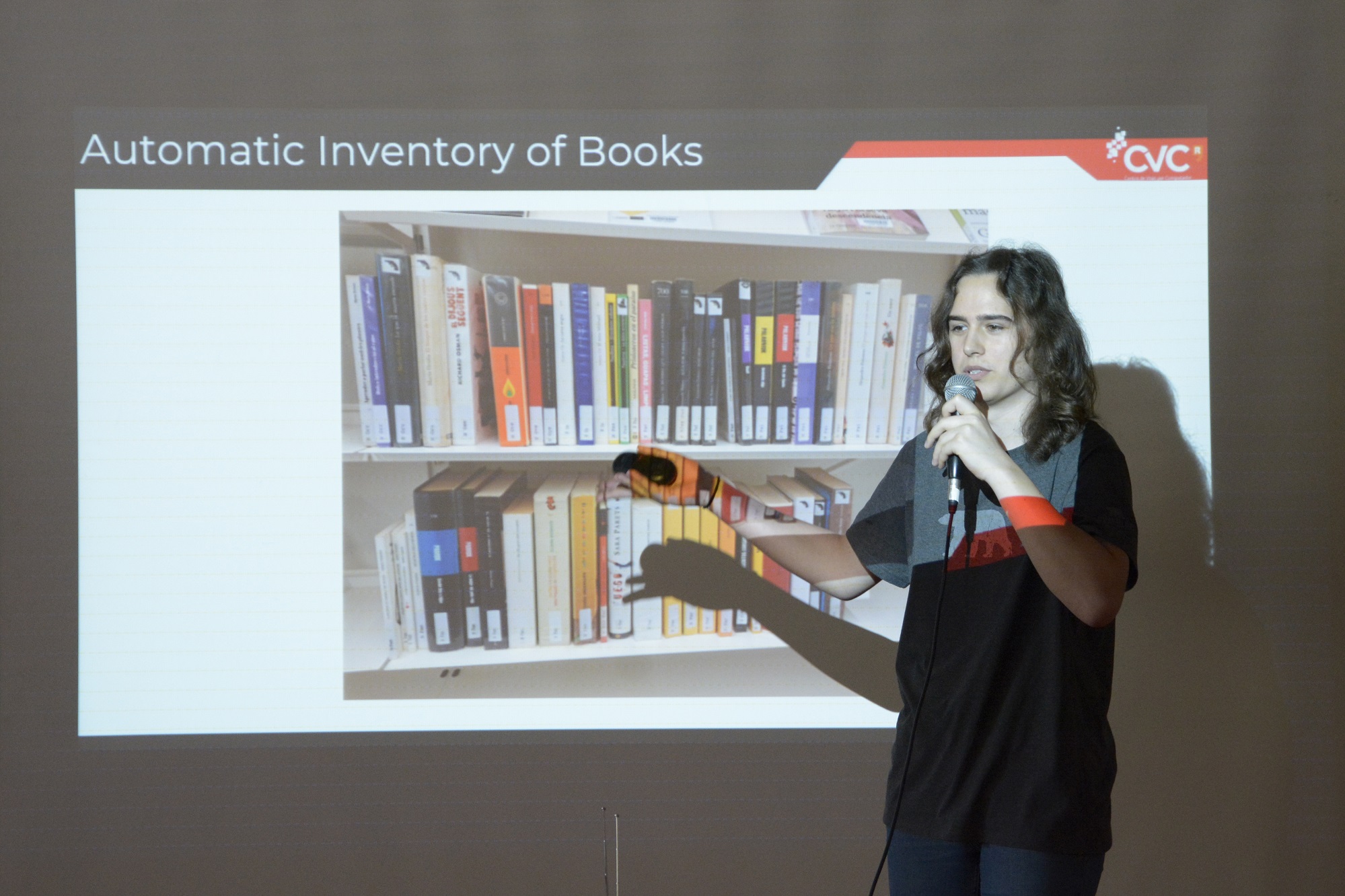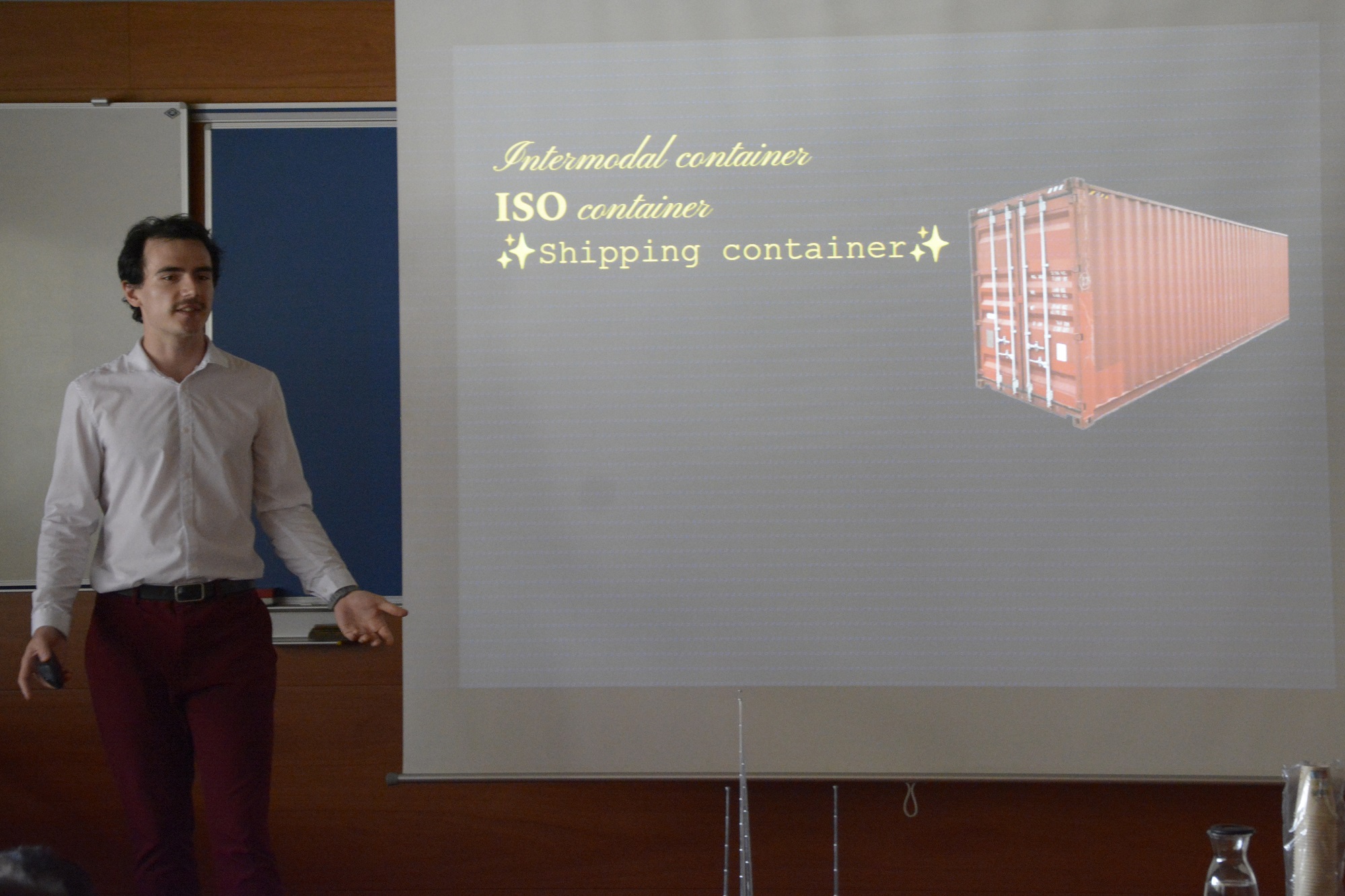
Workshop on Computer Vision Trends and Challenges [Junior] 2023
Every year, our PhD students present the state-of-the-art of their research, as well as their future lines of work at the Workshop on Computer Vision Trends and Challenges (CVCRD). This year, though, we were glad to celebrate a first edition dedicated to our junior researchers. On June 02, we celebrated the first CVCRD Junior edition!
A half-day workshop in which bachelor, master students and interns undertaking their research projects at CVC presented the results of their research. This year’s Organising Committee has been formed by our PhD student, Adrià Molina, and CVC’s communications department.
The workshop comprised six different oral sessions with 10-minute presentations dedicated to several Computer Vision areas.
CVCRD Junior 2023 program
11:00-11:15h
Adarsh Tiwari | LLM for Sketch Completion
Adarsh presented the latest advancements in the field of sketch completion using Large Language Models (LLMs). Sketch completion plays a vital role in computer vision applications such as image generation and artistic design. He demonstrated how LLM models can effectively fill in missing or incomplete sketch elements, leading to enhanced visual representations.
*Bachelor student supervised by Sanket Biswas, PhD student at CVC's Vision, Language and Reading group
11:15-11:30h
Nikhitha Nagabhyru | Self-Supervised Learning for Image Classification
Nikhitha delved into the realm of self-supervised learning and its application to image classification tasks. Self-supervised learning leverages unlabeled data to learn meaningful representations, enabling efficient training and accurate classification. She explored the potential of self-supervised learning algorithms and their impact on improving image classification performance.
*Bachelor student supervised by Coen Antens, Head of CVC's Innovation Unit
11:30-11:45h
Ariadna De Vicente | A Research Knowledge Graph for Academic Knowledge Transfer
Ariadna presented a comprehensive research knowledge graph designed to facilitate academic knowledge transfer. By integrating various data sources and employing graph-based techniques, this knowledge graph enables efficient exploration, discovery, and collaboration among researchers. She talked about how this knowledge graph enhances information retrieval and knowledge sharing within the academic community.
*Bachelor student supervised by Dr Josep Lladós, Heaf of CVC's Document Analysis group
11:45-12:00h
Carles Boned | A Topology-Centric Record Linkage Approach for Inductive Representation
Carles discussed a novel topology-centric record linkage approach for inductive representation. This approach leverages topological analysis to link records across datasets, enabling the creation of inductive representations that capture both local and global data patterns. He talked about how this approach enhances record linkage accuracy and facilitates data integration in various applications.
*Research technician supervised by Dr Oriol Ramos, researcher at CVC's Document Analysis group
12:00-12:15h
Artur Llabrés Brustenga | Automatic Inventory of Books in a Library
Artur showcased an innovative solution for automatically inventorying books in a library. Using computer vision techniques and deep learning algorithms, this system enables efficient and accurate identification and cataloguing of books. He talked about how automated book inventory systems can streamline library operations and improve accessibility to library resources.
*Research technician supervised by Coen Antens, Head of CVC's Innovation Unit
12:15-12:30h
Kyryl Dubovetskyi | AllRead: enhancing Cargo Container Code Recognition
Kyryl's work focuses on enhancing the performance of a cargo container code reading model using machine learning and computer vision techniques. The objective is to develop an improved system for accurately recognizing and decoding container codes, which play a crucial role in logistics and transportation. The project involves leveraging incremental and weakly supervised learning methods, along with the utilization of TensorFlow framework for model development and optimization. By improving the container code reading capabilities, the project aims to enhance the efficiency and accuracy of cargo handling and tracking processes in the industry.
*Master student supervised by Dr Dimosthenis Karatzas, Head of CVC's Vision, Language and Reading group



